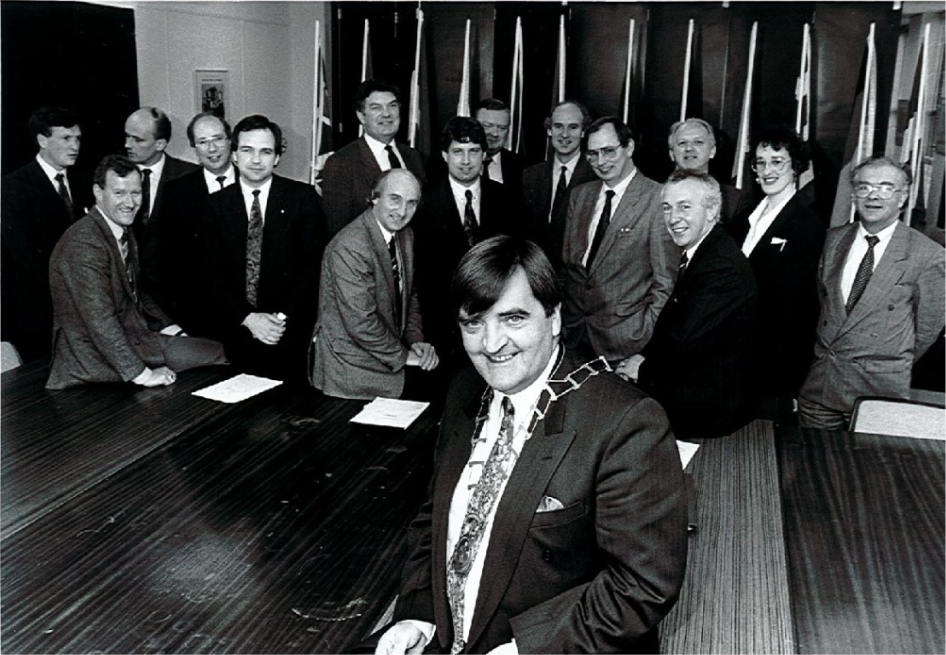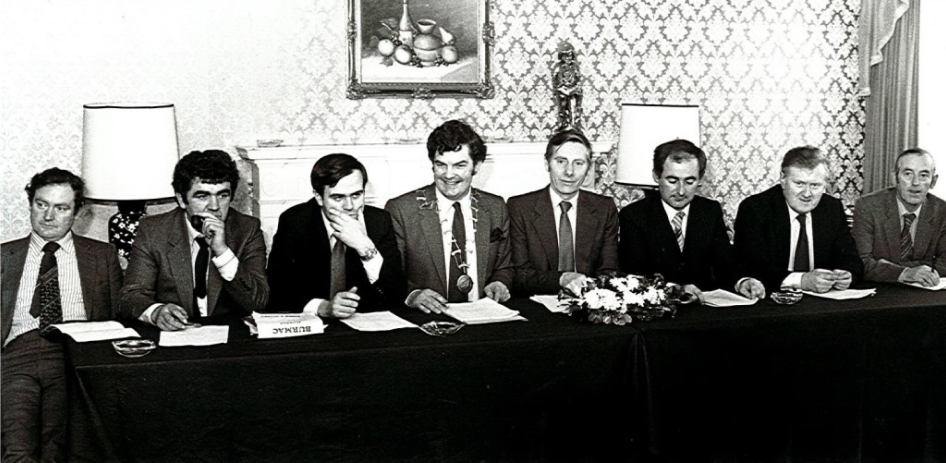The Agricultural Science Association (ASA)
The Agricultural Science Association (ASA) was formed as a consequence of an increasing number of Agricultural Science graduates from the Royal College of Science for Ireland (RCSI) before 1926, and following the formation of the Faculty of Agriculture in UCD, and the Faculty of Dairy Science in UCC in 1926.
As Graduate numbers from both Faculties were increasing, the requirement to form a professional association provided a basis for the establishment of the ASA.
In February 1941, an initiative was taken by the then auditor of the UCD Agricultural Science Society, Tim McEvoy, to arrange a meeting of graduates of the RSCI, UCD and UCC, with a view to forming an association of those technically involved in Agriculture. About 40 graduates attended this meeting, from a wide range of employments (with many supporting letters received from graduates who could not attend).
Following on from this initial exploratory meeting, a second meeting was arranged for May 1942 in the RDS. Again about 40 members attended, Prof. Drew presided and Tom Clear acted as Secretary of the working committee. It was decided at that meeting to form a working Committee of nine people for the purpose of preparing a draft constitution and report back at a General Meeting at the next Spring Show. By May 1944, the first General Meeting of the ASA took place in the RDS and Professor Drew was elected as first President and Tom Clear was elected as first Secretary with a Council of 10 members, all graduates of agriculture of the NUI.
The professional association was to be confined to University Graduates of Agricultural Science and Dairy Science and Associates of the RSCI. The immediate objectives were to increase membership of the Association but also to address professional employment issues and grievances that were pertinent for the graduates of the time and which were many and varied. These included among other issues, superannuation concerns, temporary employment of graduates in public service institutions and semi state companies, and comparisons with other groups in the civil service.
The Association also focused upon educational and research matters as well as on agricultural development. It produced a memorandum of recommendations which included the raising of the school leaving age from 14 to 15 years and for providing a rural bias in the curriculum in primary schools. The provision of an adequate advisory service for farmers by doubling of the number of agricultural instructors, and improvements in the curriculum of the Faculty of General Agriculture in UCD and including the hiring of additional specialists to the teaching staff, were among other recommendations.
Agricultural Science graduates became active as educators in the second level and vocational sectors with the passing years and the ASA members had an important input into the years leading up to the development and formation of the Agricultural Institute (An Foras Taluntais) as well as in the internal affairs of UCD between the 1950’s and 1970’s.

Key players in the early years of the ASA came from all employment areas in which agricultural graduates worked professionally and included: Professors Drew, Gorman, Carroll, Clear, EJ Sheehy, Dr T Walsh (UCD/AFT), and in later years Dr PL Curran, Stephen Furlong (Irish Sugar Company), and Bill Corcoran (Agricultural Advisor). In 1969, the ASA was incorporated into a limited company and has acted in this capacity since that time. The membership has continued to grow steadily (though many agricultural graduates still chose not to be members) and the ASA numbers about 1800 members in 2018.
Prior to 1970, Agricultural Science graduates were totally of the male gender. During the seventies, there was a steady increase in female students and this continued up to the present time with male-female graduates being quite balanced. The increase in female students has been strongly reflected in ASA Council membership and recently has included a number of ASA Presidents. With the mix of male-female participants at managerial level in the Association, the diversity, relevance and efficiency of operation of the ASA continue to increase.
The ASA held its first technical conference in 1951 and since that time, it has held Annual Conferences up to the present day. The Annual Conference is the biggest event of the year for the Association and the success of the Conference may be in part attributed to the educational and technical values and the relevance the ASA brings to the Agricultural and Food Industry. This very professionally run Conference has become a major National Agricultural event, attracting significant sponsorship support from the Agri-food sector and attracting speakers and contributors from all around the World to address the members and the conference delegates year-on-year. In addition, the ASA, via it’s Presidents and Council over the decades, has made submissions to Government on important policy matters relating to the Agri-Food and Environmental Sectors impacting the Industry.
ASA promoted and assisted the students in the Educational Institutions from which its members originate for many decades. For example, ASA members assist students annually, in the participating educational institutions, by providing “Mock” interview systems for students in their final year of study in their preparation for the world of work. They also support selected educational opportunities for students as well as recognising performance excellence in their educational programmes.
The ASA also organise educational visits to Farm, Agri and Food Industrial complexes as well as carrying out innovative educational tours to farms, processors, research and other institutions in Ireland and overseas. It also organises technical updates for members in key areas such as marketing, dairy, crops, animal nutrition and equine among other important areas.
The high standing of the ASA may be attributed at least in part to the wide ranging educational skills, integrity and competencies the Agricultural and Food Science graduates from all the disciplines bring to their work places, as well as the interest of these graduates in the advancement of their profession and making their own individual contribution to the advancement of their industry and to Ireland.
The Agricultural Science graduate is now working in an environment where changes are now taking place at a faster rate than ever. Consequently, the membership sees an absolute need for continuing ongoing education and upskilling to remain professionally effective in our modern world. With the ever changing EU schemes and the many newer technologies of recent years, whether they be advancements in animal/crop breeding, accountancy techniques, developments in animal–crop protection, emergence of new diseases and their control etc. and now the imminent emergence of Brexit and its somewhat unknown consequences, the importance of ongoing upskilling will be more essential than ever in order to stay in business.
Compiled by Dermot Ruane and Frank Crosby (with acknowledgement of the work of Leo Curran)

